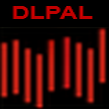Are Hedge Funds Betting Against Low-Volatility Stocks?
A related paper to:
#7 – Volatility Effect in Stocks – Long-Only Version
Authors: Blitz
Title: Are Hedge Funds on the Other Side of the Low-Volatility Trade?
Link: https://papers.ssrn.com/sol3/papers2.cfm?abstract_id=2898034
Abstract:
The low-volatility anomaly is often attributed to limits to arbitrage, such as leverage, short-selling and benchmark constraints. One would therefore expect hedge funds, which are typically not hindered by these constraints, to be the smart money that is able to benefit from the anomaly. This paper finds that the return difference between low- and high-volatility stocks is indeed a highly significant explanatory factor for aggregate hedge fund returns, but with the opposite sign, i.e. hedge funds tend to bet not on, but against the low-volatility anomaly. This finding has several important implications. First, it implies that limits to arbitrage are not the key driver of the low-volatility anomaly. Second, it argues against the notion that the anomaly may be disappearing or may have turned into an ‘overcrowded’ trade. A final implication is that the return difference between low- and high-volatility stocks should be recognized as a key explanatory factor for hedge fund returns.
Notable quotations from the academic research paper:
"There is a vast amount of evidence that low-volatility and low-beta stocks earn higher returns than predicted by the Capital Asset Pricing Model (CAPM). Blitz, Falkenstein, and van Vliet (2014) provide an extensive overview of the various explanations for this phenomenon that have been proposed in various streams of literature. One of the most popular explanations is that the anomaly results from limits to arbitrage, such as leverage, short-selling and benchmark constraints.
Leverage, short-selling and benchmark constraints may indeed prevent a lot of investors from exploiting the low-volatility anomaly, but such limits to arbitrage are much less of a concern for hedge funds, as these funds tend to be characterized by an absolute return objective and ample flexibility to apply leverage and shorting. Based on the limits to arbitrage explanation one would therefore expect hedge funds to be the smart money that actively takes advantage of the opportunity provided by low-volatility stocks. This paper empirically tests this hypothesis by regressing aggregate hedge fund returns on the return difference between low- and high-volatility stocks.
The main finding is that the return difference between low- and high-volatility stocks is indeed a highly significant explanatory factor for aggregate hedge fund returns, but with the opposite sign, i.e. hedge funds do not bet on, but against the low-volatility anomaly. This argues against limits to arbitrage such as leverage, short-selling and benchmark constraints being the main explanation for the low-volatility anomaly. The finding that the multi-trillion hedge fund industry is not arbitraging but contributing to the low-volatility anomaly also argues against the popular notion that the anomaly is disappearing or becoming an ‘overcrowded’ trade. The findings in this paper also have implications for the hedge fund performance evaluation literature, as the return difference between low- and high-volatility stocks turns out to be a stronger explanatory factor for hedge fund returns than many previously documented factors."
Are you looking for more strategies to read about? Check http://quantpedia.com/Screener
Do you want to see performance of trading systems we described? Check http://quantpedia.com/Chart/Performance
Do you want to know more about us? Check http://quantpedia.com/Home/About
Share onLinkedInTwitterFacebookRefer to a friend
























